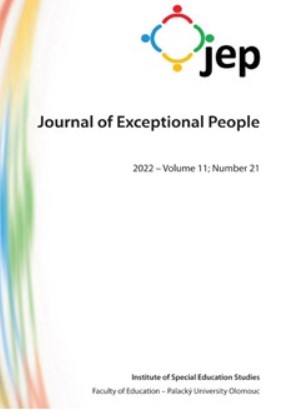The effect of bilingualism on the severity of aphasia in people after stroke in the acute stage
The effect of bilingualism on the severity of aphasia in people after stroke in the acute stage
Author(s): Markéta Rylková, Lucie KytnarováSubject(s): Psycholinguistics, Health and medicine and law
Published by: Univerzita Palackého v Olomouci
Keywords: aphasia; bilingualism; stroke; acute stage;
Summary/Abstract: If an individual premorbidly controls one of the languages better, one would expect that this difference would be reflected in the degree of impairment of these lan-guages. We call this pattern parallel healing, and it works this way for many patients. For this reason, it was determined that the aim of the research is to describe the in fluence of bilingualism, diglossia of the “Po nashymu” dialect on the degree (severity) of aphasia after a stroke (CVA) in patients in the acute stage. Material and method: The research is quantitative in nature. The standardized MASTcz screening test was used for data collection, which is freely available for download on the Brno University Hospital website (Aphasia Screening: MASTcz – Brno University Hospital, 2008). The research sample consists of 22 people who are in the acute stage after a stroke. 8 people are bilingual, 14 people are monolingual. Results: Bilinguals do not achieve a higher average score in the total language index (CJI) of the MASTcz test than the control group. Bilinguals show a higher average age (76.5) at the onset of CVA than monolinguals (69.14), but this difference is not statistically significant. MAST performance decreases with increasing age, correlation is weak, negative, statistically significant difference not confirmed due to small sample size. Discussion: The research was inspired by the study of Paplikar (2019), which is based on the assumption that bilingualism results in better cognitive outcomes in patients after CVA. He hypothesizes that this protective effect is due to lifelong use of two languages and switching between them, suppressing the potential competition of another language during production. The results of our research did not statistically significantly show that less severe degrees of aphasia develop in bilingual people in the acute stage after CVA than in monolingual people, but bilingual people showed a higher average age at the onset of CVA than monolingual people. The results were greatly influenced by the insufficient number of probands and also by their disproportionate distribution.
Journal: Journal of Exceptional People
- Issue Year: 11/2022
- Issue No: 21
- Page Range: 63-74
- Page Count: 12
- Language: English

